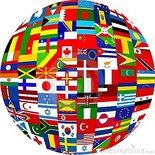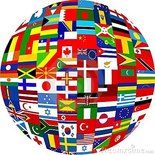International Relations refers to 3 Levels of Analysis to explain the factors, or concepts, responsible for events that occur:
Systemic Level
Consists of factors that are outside of a state's control (External factors)
Some Examples:
Realism often uses systemic level factors to explain realist theories.
Some Examples:
- Anarchy
- States (Great Powers)
- Geography
- Balance of Power (Relative Power)
- Technology
Realism often uses systemic level factors to explain realist theories.
Domestic Level
Consists of factors that are within a state's control (Internal factors)
Some Examples:
Liberalism often uses domestic level factors to explain liberalist theories.
Some Examples:
- Regime Type
- Strong/Weak Society (How society interacts with the state)
- Institutions
- Economic Policies
- Culture
- Public Opinion
Liberalism often uses domestic level factors to explain liberalist theories.
Individual Decision-Maker Level
Consists of factors that deal with the state's leader/ decision-maker
Some Examples:
The problem with this level is that it is not generalizable (everyone is different).
Some Examples:
- Personality
- Attitudes and Belief Systems (Where do these come from?)
- Psychological Aspects (Cognitive Factors)
The problem with this level is that it is not generalizable (everyone is different).


